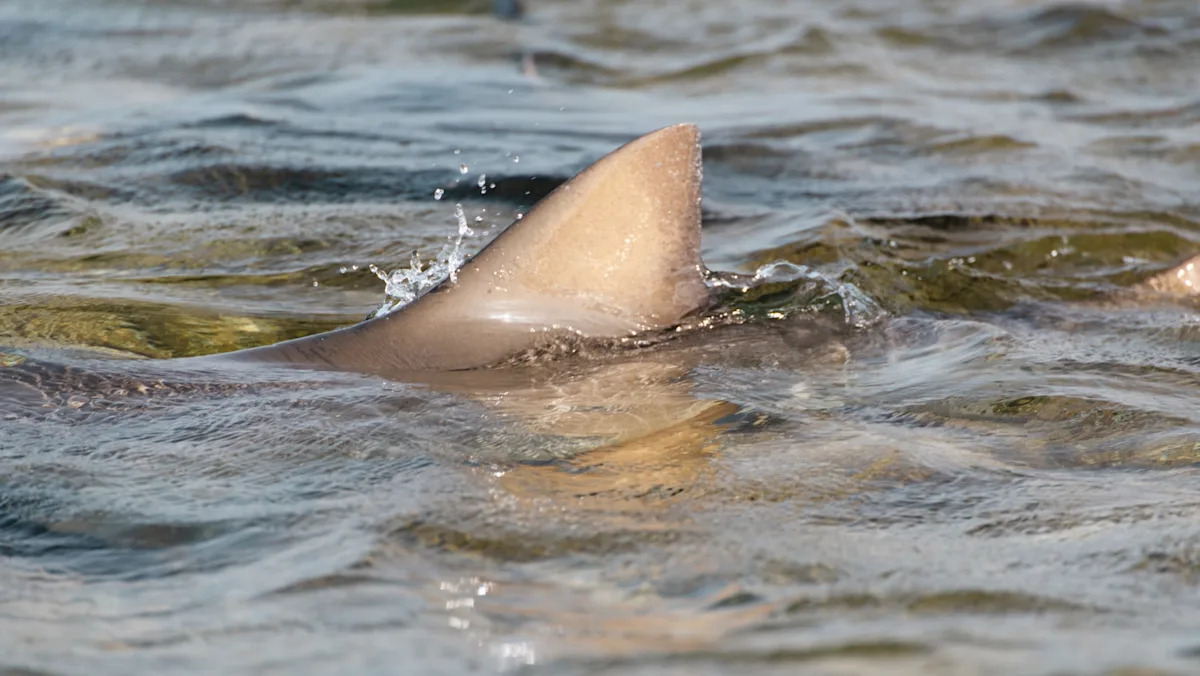A new pattern in shark behavior has experts sounding the alarm, and it may have everything to do with an overheating planet.
What’s happening?
Bull sharks are known to be able to swim between saltwater and freshwater, but they’re showing up in rivers and lakes in increasing numbers, according to The Travel. Scientists say the reason may lie in rising global temperatures. As human pollution continues to warm up the planet and its oceans, bull sharks are making their way into new freshwater habitats inland. One study found five times more young bull sharks in Alabama’s Mobile Bay estuary than 20 years ago.
It’s also possible that these sharks could end up completely landlocked in freshwater lakes. As warmer temperatures worsen extreme weather events such as flooding, it provides inland access for sharks. When the flood waters recede, the sharks remain with no way to get out. It already happened in Brisbane, Australia, when a few bull sharks entered a landlocked lake after flooding in the 1990s. Today, the thriving group has grown to around 12 sharks, some nearly 10 feet long.
Why is this concerning?
Bull sharks aren’t new to freshwater; they’ve been swimming upriver for millions of years. But what is new is how frequently and how far they’re venturing inland. Some have been found as far as 1,740 miles up the Mississippi River and 2,400 miles into the Amazon.
Apex predators such as bull sharks are an important part of the food web. But their increasing presence in freshwater habitats could throw ecosystems out of balance. Native fish may face new competition and predators they’ve never encountered. This shift in predator dynamics can ripple through entire food webs, disrupting biodiversity and endangering local species.
When local ecosystems are disrupted this way, the consequences hit nearby communities that rely on the water systems for irrigation, food, and livelihoods. And while shark attacks are rare, they could increase with this trend — especially considering bull sharks can often be aggressive toward humans.
How can we protect ecosystems?
While bull sharks’ adaptability is impressive, experts say their freshwater expansion is just one more sign that our planet’s climate systems are shifting, often in dangerous and unpredictable ways. Reducing pollution, protecting freshwater and marine habitats, and practicing sustainable fishing are essential to restoring balance.
Watch now: Giant snails invading New York City?
You can take action by supporting conservation efforts to protect ecosystems. To find other ways to help, start by exploring critical climate issues and making more sustainable choices — such as making your next car an electric vehicle or installing solar panels — to help reduce these environmental pressures. Not only does it help the planet, but you’ll also save money on bills in the long run.
Join our free newsletter for good news and useful tips, and don’t miss this cool list of easy ways to help yourself while helping the planet.
